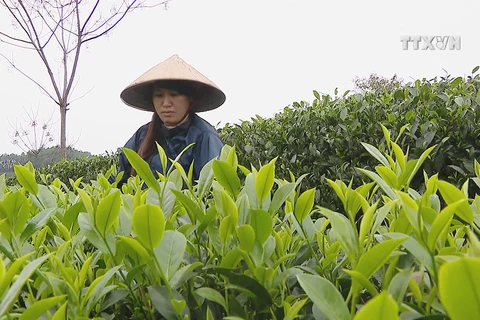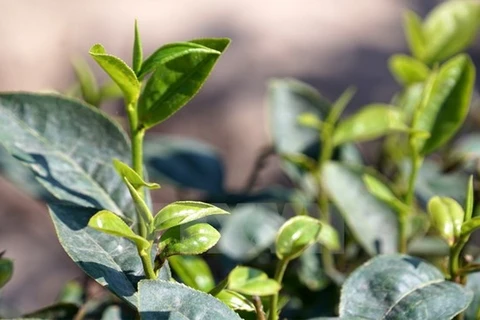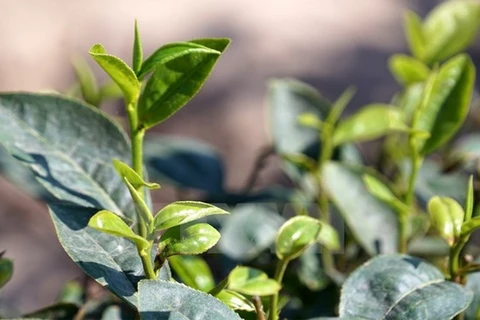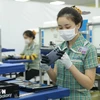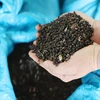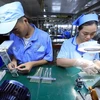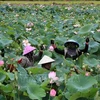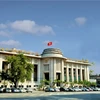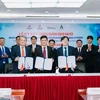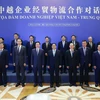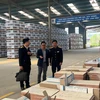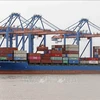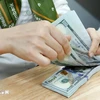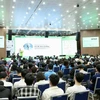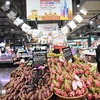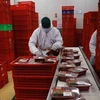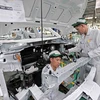Thua Thien-Hue (VNS/VNA) - The Vietnamese tea sector should work harder to improve the quality of its exports in order to better tap the global market, including Russia, experts have said.
According to experts, Vietnam currently ranks fifth in the list of global tea exporters. However, Vietnamese tea is sold at just 1.60 USD per kilo, almost three times lower than that of the most expensive Sri Lanka tea.
The low cost is due to its poorer quality as well as the popularity of Vietnamese tea.
“Vietnamese tea has a bad reputation of low quality and a high percentage of chemical residue compared to other teas,” said Sharyn Johnston of the Australian Tea Association. “Many people don’t know that Vietnam is capable of producing high quality tea.
“In fact, Vietnam has good tea and local tea has a great chance of being listed alongside the world’s specialty teas. The country’s tea sector should work harder to achieve that,” she said.
According to Ramaz Chanturiya, chairman of the Tea Association of Russia, Russia is the biggest tea importer in the world, importing more than 160,000 tonnes of tea annually, and Vietnamese tea should aim to further tap this market.
“Vietnam has the potential to do this as the country has a wide tea planting area and good tea. Even China, the world’s fourth largest tea exporter, has high demand for Vietnamese tea,” he said.
According to Dr Nguyen Huu Tai, Chairman of the Vietnam Tea Association, the country has 125,000 hectares of tea plantation, mainly in the northern mountainous provinces of Thai Nguyen, Ha Giang, Phu Thọ, Tuyen Quang and Yen Bai, and the Central Highlands province of Lam Dong.
The country has the world’s second largest area producing tea, behind China. The country consumes 45,000 tonnes of tea a year and exports 145,000 tonnes, achieving revenue of 245 million USD.
“In the past, Vietnam used chemical fertilisers for tea and also applied old technology in harvesting, making local tea of a lower quality. But the situation has changed in recent years,” he said.
“Areas planting organic tea have grown and provinces have developed large cultivated zones for tea, facilitating the application of advanced harvesting technology.”
According to the Vietnam Tea Association, tea growers in eight provinces around the country, including Ha Giang, Thai Nguyen, Nghe An and Lam Dong have registered to cultivate under the procedures of VietGAP and Global GAP (Good Agriculture Practice) to improve their tea quality.
The quality of local tea is gradually improving thanks to these measures, but Tai said the tea sector would need to attract more investment in order to better meet global standards.
Johnston of the Australian Tea Association insisted that Vietnamese tea producers must work to gain global recognition for their products. Meanwhile, Chanturiya of the Tea Association of Russia said the country’s tea sector should develop a large-scale company working to promote the top tea varieties of Vietnam.
Chanturiya also encouraged the development of a promotion network for Vietnamese tea in tourism hotspots like Hue, as well as help local tea producers take educational trips abroad.
William Lee of the Korea Tea Board recommended tea cultural tourism, saying that Vietnamese gastronomy is well-known around the world, but food and beverage service for tourists in the country are rarely accompanied with tea.
Lee said bringing international visitors to tea plantations and creating tea festivals would help people learn more about the Vietnamese tea culture.
Those experts encouraged Vietnamese tea businesses to take advantage of the Tea Masters Cup International, which is the fourth world championship held for international tea sommeliers on November 23-25 in Hue, to promote Vietnamese tea.
At the competition, all types of tea used for the sommeliers are Vietnamese trademarks. The speakers spoke at a seminar held by the Ministry of Agriculture and Rural Development held late last week as a sideline event of the Tea Masters Cup International.-VNS/VNA
VNA


